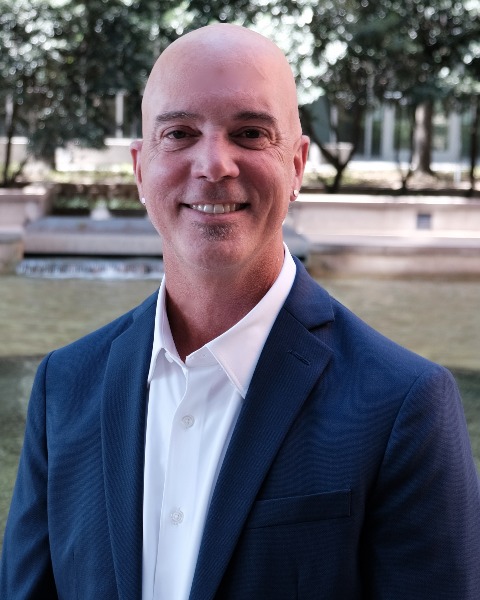Poster Presentation
Leadership, Mentoring, and Training the Next Workforce
Wednesday Evening Poster Reception
WED-106 - Preparing the Next Generation of the Health Education Workforce to Be Self-directed Learners
Wednesday, April 16, 2025
6:00 PM - 7:00 PM PST
Location: Pacific I/II, 2nd Floor
Area of Responsibility: Area VII: Leadership and Management
Subcompetencies: 7.2 Prepare others to provide health education and promotion., 7.2.6 Evaluate training as appropriate throughout the process.
Research or Practice: Research
Subcompetencies: 7.2 Prepare others to provide health education and promotion., 7.2.6 Evaluate training as appropriate throughout the process.
Research or Practice: Research

J. Michael Wilkerson, PhD, MCHES (he/him/his)
Associate Professor
UTHealth School of Public Health
Houston, Texas, United States
Poster Presenter(s)
Learning Objectives:
At the end of this session, participants will be able to:
- Explain why schools of public health should ensure their courses facilitate self-directed learning of students enrolled in a health promotion and behavioral sicences course.
- Summarize relevant constructs to assess whether a course facilitates self-directed learning of students enrolled in a health promotion and behavioral sciences course.
- Articulate why, when, and how schools of public health faculty should include an assessment of self-directed learning in their course evaluations.
Detailed abstract description:
Introduction: In addition to training MPH students to meet core CEPH competencies, schools of public health should be training their students to become self-directed learners who are motivated to increase their knowledge and skills after graduation. This analysis evaluated how much students enrolled in UTHealth Houston’s MPH core Health Promotion and Behavioral Sciences (HPBS) course rated themselves on measures of self-directed learning.
Methods: MPH students enrolled in the core HPBS course between the fall 2021 and summer 2024 semesters were invited to complete a pre-course survey during the first week and a post-course survey during the last week. The post-course survey asked students to complete the Andragogy in Practice Inventory (API). The 60-item API consists of six scales that assess andragogical principles (orientation to learning, intrinsic motivation to learn, prior experience, self-directed learning, readiness to learn, and need to know) and eight andragogical design element scales (preparing the learner, climate setting, mutual planning, diagnosis of learner needs, setting of objectives, design of the learner experience, learner activities, and evaluation). The API is administered at the end of a course or at the end of a degree program to assess the extent to which the instructor(s) created a learning environment that encourages self-directed learning. Each of the 60 items has a 5-point Likert-scale response option ranging from strongly disagree to strongly agree. For each scale, sum scores were created with a higher score indicating more agreement. For this cross-sectional analysis, we identified differences in mean scores between participants with different demographic or academic characteristics. No financial compensation was provided, although some faculty offered extra credit if students completed both surveys. The UTHealth Houston IRB approved study protocols.
Results: A total of 228 students provided post-course data. Most of the students who completed the surveys were women (80.3%). The average age of students was 26.9 (sd=6.9). Students agreed that how the HPBS course was taught encouraged self-directed learning. Similar increases were found regardless of age, gender, race/ethnicity, discipline, campus location (UTHealth Houston has campuses in six Texas cities), semester enrolled, or the number of previously taken social science or health promotion courses.
Discussion: The HPBS MPH core course successfully trains students to become self-directed learners about HPBS topics. Faculty teaching the course can be assured that regardless of students’ demographic characteristics, discipline, or academic preparation, students will complete the course with similar self-efficacy to meet learning competencies. As part of their course evaluation, HPBS faculty in schools of public health might want to add an assessment of self-directed learning.
